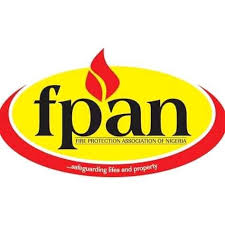The Fire Protection Association of Nigeria (FPAN) has raised concerns over the increasing rate of tanker fire accidents in the country, attributing the incidents to a lack of specialized training for drivers, weak enforcement of regulations, and mechanical design flaws in tanker construction.
According to the Chairman of the Board of Fellows of the Association, Peter Onyeri, the accidents have caused major disruptions to economic and social activities, resulting in loss of lives and destruction of property.
“The association has followed with keen professional interest, the disturbing frequency of petroleum tanker fires in many parts of the country,” Onyeri said.
He emphasized that current training programs for tanker drivers often overlook critical human factors like fatigue, absent-mindedness, and distractions.
“A lot of trainings are conducted without finding out what the issues are and exactly what needs to be addressed. Human factors are issues that have to do with things like carelessness, absent-mindedness, fatigue, and of course, tiredness,” Onyeri explained.
Onyeri also pointed out that tankers are not properly organized, and drivers need to be trained to handle the unique demands of transporting petroleum products.
Moreover, Onyeri highlighted the issue of design misalignment in tankers, where the heads are imported, and the bodies are fabricated locally. This, he said, can lead to catastrophic failure when the tanker experiences vibrations or impact.
“The linkage between the body and the head is usually out of alignment due to mechanical design flaws. When a tanker loaded with petroleum products experiences vibrations or impact, the head can decouple from the body, resulting in catastrophic failure,” Onyeri stated.
To address these concerns, Onyeri called for a strategic program to reduce the risks associated with tanker fires, involving collaboration between the Federal Government, the Organized Private Sector, and the Fire Protection Association of Nigeria.
He also urged the Federal Government to enforce regulations governing the petroleum industry, adding that weak enforcement has contributed to the increasing rate of tanker accidents.
The Director of the Lagos State Fire and Rescue Service, Margaret Adeseye, revealed that the issue of tanker fire accidents would be a sub-theme at the upcoming Lagos International Fire and Safety Conference.
She said international stakeholders will participate in discussions aimed at finding long-term solutions to minimize tanker fire accidents in Nigeria.

